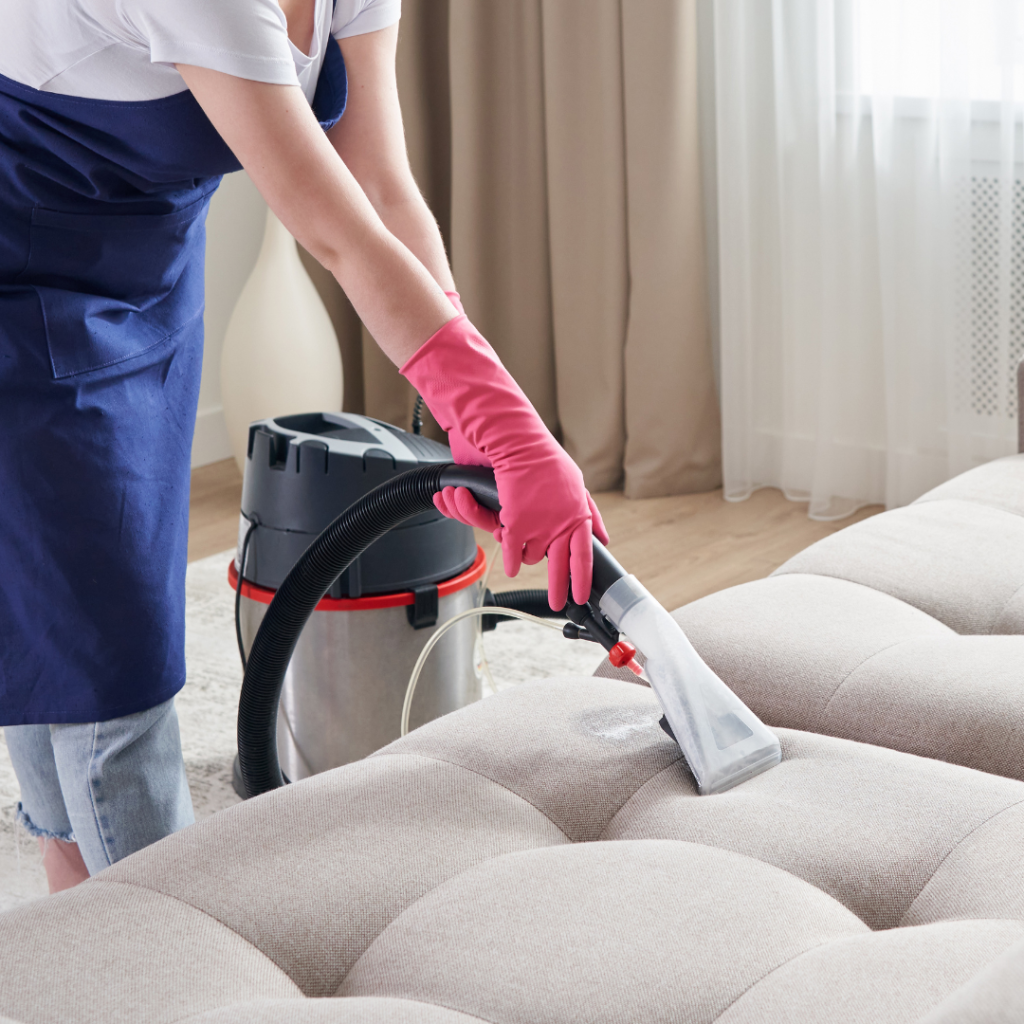打造抗敏居家環境,守護小兒呼吸道健康
家有過敏兒,爸媽總是格外操心。孩子噴嚏連連、咳嗽不止,甚至皮膚紅腫搔癢,也讓父母心疼不已。根據衛生福利部統計,台灣氣喘和過敏兒比例在亞洲中排名最高,其中約九成的過敏性氣喘患者是因塵蟎過敏所引起。好消息是,只要打造抗敏居家環境,就能有效降低過敏原的刺激,改善孩子過敏狀況,守護呼吸道健康。本篇文章將根據最新研究成果,提供一系列實用的抗敏策略,幫助家長創造一個舒適、健康的成長空間。
塵蟎大作戰:減少塵蟎孳生,還孩子清新呼吸
根據台大昆蟲系的研究調查,台灣約75%的家庭都存在塵蟎。塵蟎是居家環境中最常見的過敏原之一,特別喜愛溫暖潮濕的環境,常藏身於地毯、布藝傢俱、床墊和絨毛玩具等處。當家中塵螨含量過高,可能增加孩子未來發展過敏體質與氣喘的風險。
如何有效控制過敏原?
減少塵蟎藏身之處
避免地毯、布藝沙發和窗簾的使用,改用木質或塑膠地板,並搭配可水洗的地毯。孩子長時間待在臥室,應優先打造無塵空間。
寢具定期清潔
床單、枕套、床套和毯子每週以熱水清洗,並高溫烘乾,有效減少塵蟎數量。
控制室內濕度
塵蟎在低濕環境無法生存,保持濕度50%以下。留意室內乾燥通風,天氣乾燥時,適時開窗通風;潮濕氣候下,建議空調除濕,避免使用加濕器,以防滋生細菌和黴菌,反而加重過敏。若孩子鼻腔乾燥,可使用生理鹽水鼻噴劑,而非使用加濕器。
減少絨毛玩具
絨毛玩具是塵蟎的溫床,減少臥室中絨毛玩具的數量,定期以熱水清洗。
使用高效能空氣過濾器(HEPA)
選擇配備HEPA濾網的吸塵器定期清潔地板、家具表面,能有效過濾空氣中的塵蟎與過敏原。
進階清潔方案
研究顯示,使用乾熱或蒸汽清潔能有效殺死塵蟎並減少過敏原,可定期清潔地毯、床墊和羽絨被。
搬到樓上
樓上濕度較低,塵蟎數量相對較少,如果條件允許,搬到樓上的公寓也是個好選擇。
寵物皮屑過敏:與毛小孩和平共處
對寵物皮屑過敏的孩子,避免飼養寵物是最理想的解決方案。根據健康醫療網報導,家中有寵物可能加劇過敏狀況,如果無法割捨對毛小孩的愛,應避免孩子長時間與寵物接觸。以下是一些額外的建議:
寵物禁入臥室
杜絕寵物進入臥室,保持房門關閉,可有效降低臥室中過敏原濃度。
移除地毯和布藝傢俱
寵物皮屑容易附著在地毯和布藝傢俱上,移除這些物品可減少過敏原累積。
高效能空氣過濾器(HEPA)
家中擺放HEPA濾網空氣清淨機,有效過濾空氣中寵物皮屑。
黴菌過敏:保持乾燥通風,防止黴菌滋生
黴菌常見於潮濕的環境,如浴室、廚房和地下室。對於黴菌過敏的孩子,切記留意保持室內乾燥通風:
控制室內濕度
保持室內相對濕度低於50%,可使用除濕機或定期開窗通風。
及時清理漏水
檢查水管和屋頂是否漏水,及早修復,防止潮濕環境形成。
定期清潔浴室和廚房
使用含氯漂白劑的清潔劑定期清潔浴室和廚房,可有效殺死黴菌。
花粉過敏:減少戶外過敏原的入侵
花粉是另一種常見的過敏原,尤其在花粉季節,過敏兒容易出現打噴嚏、流鼻水和眼睛癢等症狀。以下是一些應對花粉過敏的措施:
減少戶外活動
在花粉高峰期,減少孩子戶外活動的時間。
關閉門窗
保持門窗緊閉,減少花粉飄入室內。
使用空氣清淨機
使用配備HEPA濾網的空氣清淨機可以過濾室內懸浮花粉。
回家後更衣
孩子從戶外返家,應立即更衣、清洗臉部和手部,去除身上的花粉。
食物過敏:提高警覺,避免交叉污染
對於食物過敏的孩子,避免接觸過敏食物相當重要。報導時常出現嚴重的過敏兒。食用蝦子後竟突然出現喉嚨緊縮、雙眼紅腫等嚴重過敏反應。除了避免食用過敏食物外,還要注意避免交叉污染:
仔細閱讀食品標籤
仔細閱讀食品標籤,確認食品中是否含有過敏成分。
避免共用餐具
夾菜時應使用公筷母匙,以防止交叉污染。
外出用餐時告知餐廳
外出用餐應主動告知餐廳孩子對哪些食物過敏,請務必避免使用過敏食材。
幼兒的飲食環境
幼兒容易用手抓食、交換食物。定期清潔餐桌和餐椅,監督孩子洗手,能有效降低過敏風險。隨著孩子長大,應教導他們認識自己的過敏食物。
其他注意事項
通風換氣
定期開窗通風,可以有效降低室內空氣中的過敏原濃度。研究顯示,開窗通風有助於預防新冠病毒的傳播,同樣也有助於減少過敏原的累積。
避免二手菸
二手菸會加重過敏症狀,因此應避免孩子接觸二手菸。健康醫療網的文章也提到,家庭成員抽菸會加劇過敏問題。
減少使用化學清潔劑
一些化學清潔劑會刺激呼吸道,加重過敏症狀。盡量選擇天然、低刺激性的清潔劑。
定期清潔家中環境
定期清潔家中環境,可以有效減少過敏原的累積。控制塵蟎的方法包括使用防蟎枕、被套及床套,保持居家環境乾淨和乾燥,從而減少過敏原的接觸。
結語:打造無敏空間,讓孩子健康成長
打造抗敏居家環境,家長的關注至關重要!根據國家健康保險研究資料庫(NHIRD)的統計,台灣兒童的過敏性鼻炎盛行率從1987年的5.1 %飆升到49.6%,成長近十倍。異位性皮膚炎和氣喘也是幼童常見的過敏性疾病,成為許多家庭關心的課題。
現代醫學與環境改善,讓我們有更多方法來守護孩子的健康,環保署指出,空氣污染會加劇過敏反應,而每一個小小的環境改變,都能有效減少過敏原,守護孩子的健康,讓他們更快樂、更健康地成長!
Reference
[1] Association between the First Occurrence of Asthma and Residential Greenness in Children and Teenagers in Taiwan. /International journal of environmental research and public health /2019 LINK
[2] The role of environmental allergen control in the management of asthma. /The World Allergy Organization journal /2022 LINK
[3] Allergen Management in Children with Type 2High Asthma. /Journal of asthma and allergy /2022 LINK
[4] Detection and assessment of dust mite allergens in an indoor environment in Anhui, China. /Environmental science and pollution research international /2022 LINK
[5] Household dampnessrelated exposures in relation to childhood asthma and rhinitis in China: A multicentre observational study. /Environment international /2019 LINK
[6] House Dust Mite Allergy Under Changing Environments. /Allergy, asthma & immunology research /2019 LINK
[7] Detection and assessment of dust mite allergens in an indoor environment in Anhui, China. /Environmental science and pollution research international /2022 LINK
[8] Relationships between House Characteristics and Exposures to Metal(loid)s and Synthetic Organic Contaminants Evaluated Using Settled Indoor Dust. /International journal of environmental research and public health /2022 LINK
[9] House Dust Avoidance during Pregnancy and Subsequent Infant Development: The Japan Environment and Children’s Study. /International journal of environmental research and public health /2021 LINK
[10] The role of environmental allergen control in the management of asthma. /The World Allergy Organization journal /2022 LINK
[11] Rhinitis in Japanese students associations with window pane condensation, recent indoor painting, wooden home and dog allergen at school. /International journal of environmental health research /2022 LINK
[12] Relationships between House Characteristics and Exposures to Metal(loid)s and Synthetic Organic Contaminants Evaluated Using Settled Indoor Dust. /International journal of environmental research and public health /2022 LINK
[13] Household dampnessrelated exposures in relation to childhood asthma and rhinitis in China: A multicentre observational study. /Environment international /2019 LINK
[14] Influence of indoor chemistry on the emission of mVOCs from Aspergillus niger molds. /The Science of the total environment /2020 LINK
[15] Asthma and rhinitis in wet and dry season among students in upper Northern Thailand: the role of building dampness and household air pollution. /International journal of environmental health research /2022 LINK
[16] Mechanisms of indoor mold survival under moisture dynamics, a special water treatment approach within the indoor context. /Chemosphere /2022 LINK
[17] Pollen likely seasonal factor in inhibiting flulike epidemics. A Dutch study into the inverse relation between pollen counts, hay fever and flulike incidence 20162019. /The Science of the total environment /2020 LINK
[18] Allergic Rhinitis in Children and Adolescents. /Immunology and allergy clinics of North America /2021 LINK
[19] The association between outdoor allergens pollen, fungal spore season and high asthma admission days in children and adolescents. /International journal of environmental health research /2022 LINK
[20] Outdoor Air Pollution and Indoor Window Condensation Associated with Childhood Symptoms of Allergic Rhinitis to Pollen. /International journal of environmental research and public health /2022 LINK
[21] Can dietary strategies in early life prevent childhood food allergy? A report from two iFAAM workshops. /Clinical and experimental allergy : journal of the British Society for Allergy and Clinical Immunology /2019 LINK
[22] Food Allergy in Restaurants Work Group Report. /The journal of allergy and clinical immunology. In practice /2020 LINK
[23] Food allergy and hypersensitivity reactions in children and adultsA review. /Journal of internal medicine /2022 LINK
[24] Atopic Dermatitis and Food Allergy: Best Practices and Knowledge GapsA Work Group Report from the AAAAI Allergic Skin Diseases Committee and Leadership Institute Project. /The journal of allergy and clinical immunology. In practice /2022 LINK
[25] Managing childhood allergies and immunodeficiencies during respiratory virus epidemics The 2020 COVID19 pandemic: A statement from the EAACIsection on pediatrics. /Pediatric allergy and immunology : official publication of the European Society of Pediatric Allergy and Immunology /2020 LINK
[26] Mitigation of Airborne Contaminant Spread through Simple Interventions in an Occupied SingleFamily Home. /International journal of environmental research and public health /2021 LINK
[27] COVID19 lockdown, personal protective equipment, hyperhygiene and allergy. /European annals of allergy and clinical immunology /2022 LINK
[28] Woodsmoke particle exposure prior to SARSCoV2 infection alters antiviral response gene expression in human nasal epithelial cells in a sexdependent manner. /American journal of physiology. Lung cellular and molecular physiology /2022 LINK
[29] Sources of indoor particulate matter (PM) and outdoor air pollution in China in relation to asthma, wheeze, rhinitis and eczema among preschool children: Synergistic effects between antibiotics use and PM /Environment international /2019 LINK
[30] The need for clean air: The way air pollution and climate change affect allergic rhinitis and asthma. /Allergy /2020 LINK
[31] Prenatal exposure to air pollutants and childhood atopic dermatitis and allergic rhinitis adopting machine learning approaches: 14year followup birth cohort study. /The Science of the total environment /2021 LINK
[32] Associations between home renovation and asthma, allergic rhinitis, and eczema among preschool children in Wuhan, China. /International journal of environmental health research /2022 LINK
